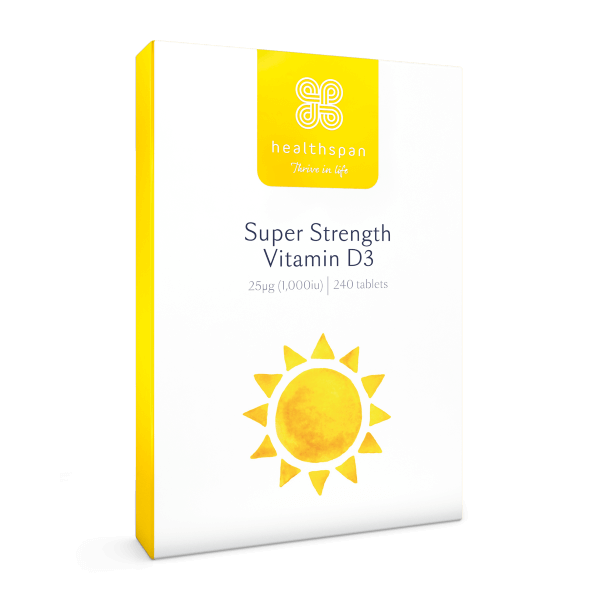With winter comes shorter, darker, colder days. For some, this also brings a form of seasonal depression known as Seasonal Affective Disorder (SAD).
SAD is more than just longing for some sunshine. As the nights draw in, people with SAD often say they no longer enjoy their everyday activities, feel irritable and lethargic, need to sleep more, and find it harder to get up.
They also report craving sugary carbohydrates, and gaining weight.
Unlike other forms of depression, SAD usually lifts in the spring and summer – but there are things you can do to feel better in the meantime, from diet and exercise to vitamin D.
Vitamin D and mood
Some studies have found that vitamin D – also known as 'the sunshine vitamin' – can help those struggling during the winter months.
A total of 14 studies involving almost 31,500 people found that those with the lowest vitamin D levels were up to twice as likely to develop depression as those with the highest levels.1
In fact, according to a 2015 study, the production, release and function of serotonin (the 'feel-good' hormone, thought to act as a mood stabiliser) is modulated by vitamin D and the omega 3 fatty acids EPA and DHA.2
Unfortunately, it's thought that around half of Ireland's adult population does not have sufficient amounts of vitamin D, as the sun's rays aren't strong enough during the winter months. There are also few food sources of vitamin D.
In 2021, the Joint Committee on Health published a report stating that 'daily vitamin D supplements of 20-25 mcg/day (800-1000 IU/day) should be recommended to the entire adult population, where possible and where medically appropriate'.3

Super Strength Vitamin D3
For healthy bones, teeth, muscles and immunity
- 25mcg vitamin D per tablet
- Helps keep bones, teeth and muscles healthy, and supports immunity
- Multiple health benefits from €0.06 a day
What else can help?
Exercise
Exercise can have an instant uplifting effect on your mood. It floods the brain with mood-enhancing endorphins and helps relieve stress. The Health Service Executive recommends at least 30 minutes a day, five days a week.4
Top tips
- Find something enjoyable – you will be much more likely to develop a routine and stick to it.
- Pair up with a friend – being accountable to someone will nip excuses in the bud and get you out the door.
- Make a deal – if you are struggling to get started, make a deal with yourself to do 10 minutes. If you still want to stop after the allotted time, you can – but chances are you will carry on.
A healthy diet
Eating a healthy and balanced diet doesn't have to be complicated. For the most part, focus on fruits and vegetables, wholegrains, beans, pulses, and good-quality meat, fish and dairy products. Other things – like sugar and unhealthy fats, as well as excess caffeine and alcohol, should be reserved as treats, as they can leave you feeling lethargic and lower your mood.
Top tips
- Go for colour – not only is colourful food more enticing, it also means you're more likely to get a variety of vitamins and minerals.
- Try something new – we often get stuck in a rut. Instead, find some new recipes that include some of your favourite healthy ingredients.
- Don't think you have to buy fresh – frozen and tinned fruit (in juice, not syrup) and veg can be just as good.
Mindfulness
We all lead busy lives, which can mean that we end up running from one job or responsibility to the next, with very little time to do the things we enjoy – or even take notice of the world around us.
According to psychologist Dr Meg Arroll, taking a moment out of this franticness has a number of benefits. "Using mindfulness to be 'present in the moment' helps with low mood and anxiety, as well as allowing people to deal more effectively with stressful situations."
Top tips
- Use your senses. As you're going about your day, notice 5 things you can see, hear, smell and feel.
- Do something for someone else – whether it's giving your time, donating something you no longer need or doing something nice for a neighbour.
- Practice gratitude. Before you get out of bed in the morning, think of five things to be grateful for.





